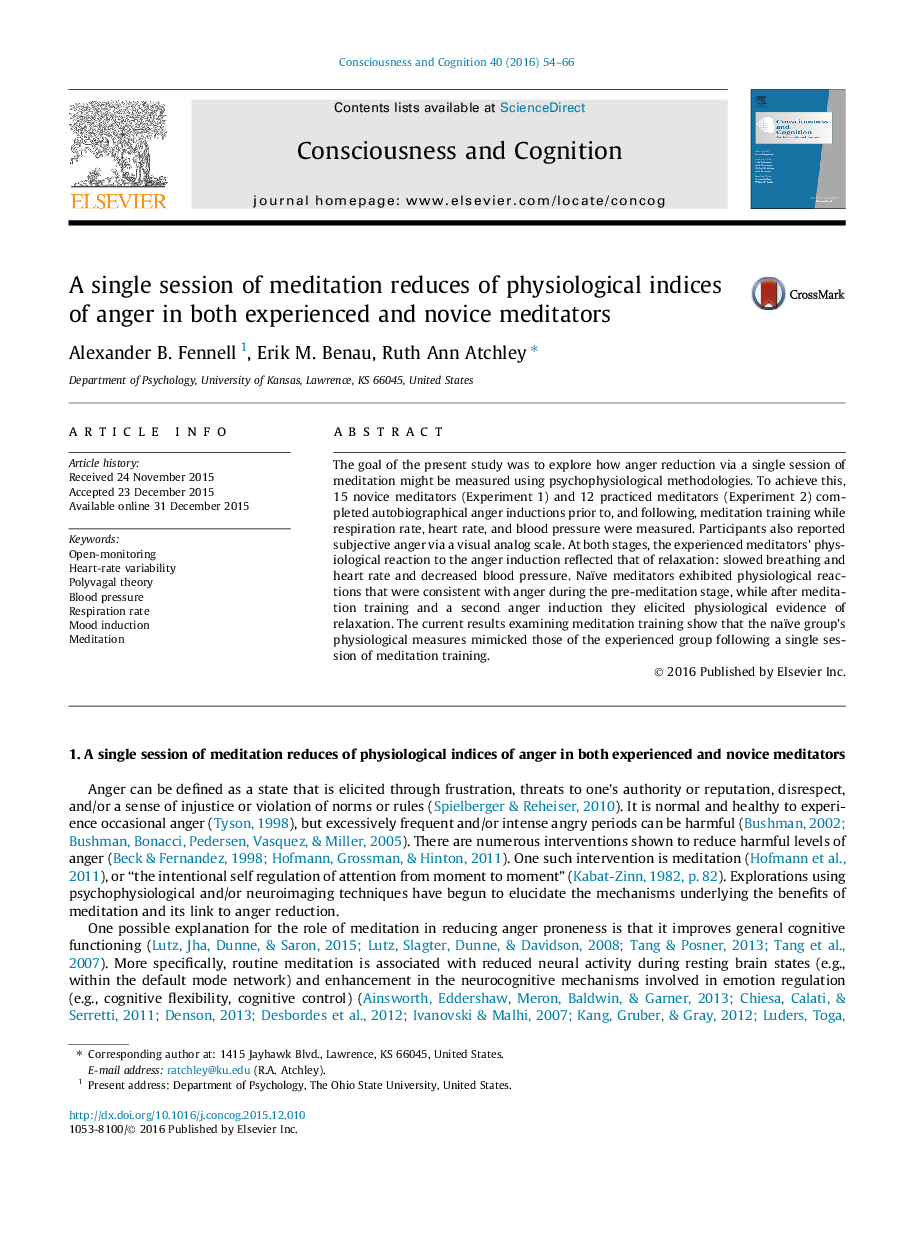| Article ID | Journal | Published Year | Pages | File Type |
|---|---|---|---|---|
| 927521 | Consciousness and Cognition | 2016 | 13 Pages |
•Investigated impact of meditation on anger reactivity in routine and non-meditators.•Meditation subjectively reduced anger in meditators and non-meditators.•Meditators had less anger reactivity than non-meditators at baseline.•Non-meditators mimicked physiology of meditators after single meditation session.
The goal of the present study was to explore how anger reduction via a single session of meditation might be measured using psychophysiological methodologies. To achieve this, 15 novice meditators (Experiment 1) and 12 practiced meditators (Experiment 2) completed autobiographical anger inductions prior to, and following, meditation training while respiration rate, heart rate, and blood pressure were measured. Participants also reported subjective anger via a visual analog scale. At both stages, the experienced meditators’ physiological reaction to the anger induction reflected that of relaxation: slowed breathing and heart rate and decreased blood pressure. Naïve meditators exhibited physiological reactions that were consistent with anger during the pre-meditation stage, while after meditation training and a second anger induction they elicited physiological evidence of relaxation. The current results examining meditation training show that the naïve group’s physiological measures mimicked those of the experienced group following a single session of meditation training.
